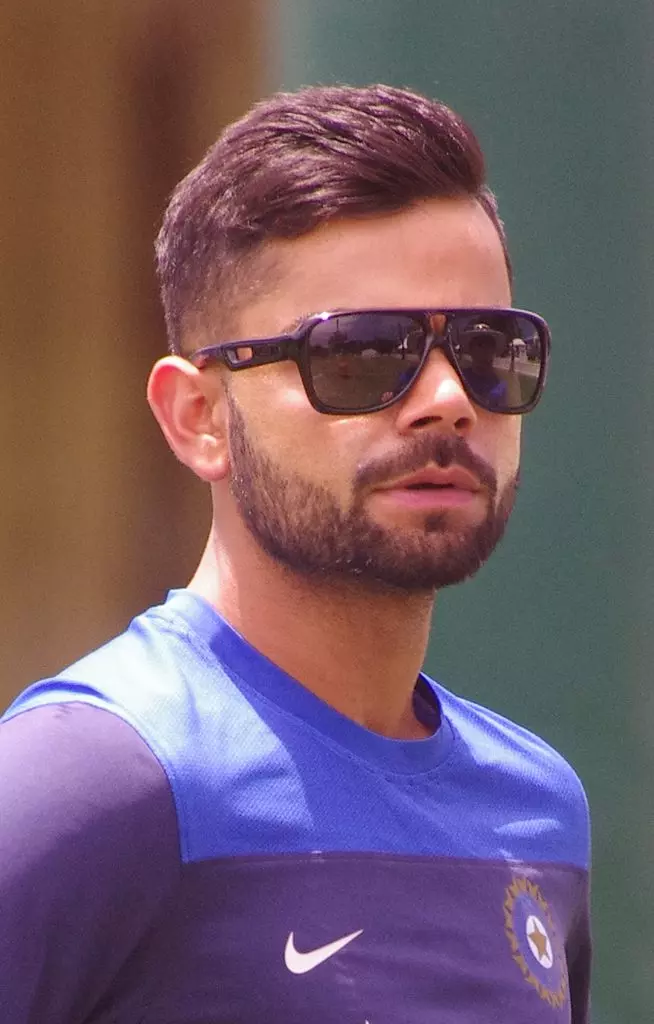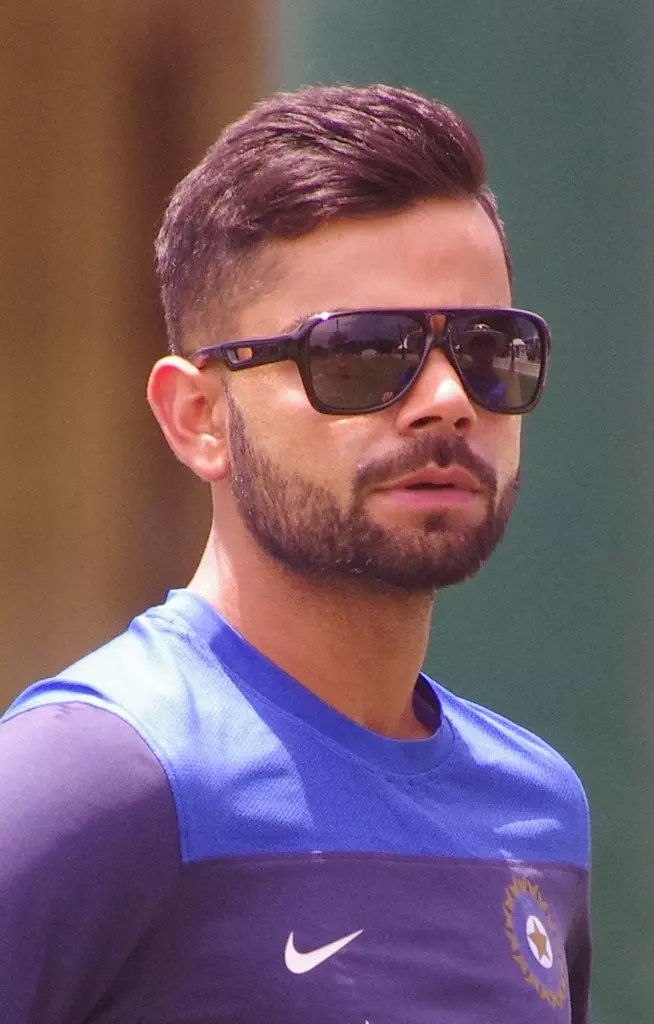
Virat Kohli is an Indian international cricketer who is considered as one of the country’s greatest athletes. He is considered as one of the greatest batsmen of his generation, as well as a right-arm medium pace bowler on occasion. He is known for his strong and efficient batting style, and he has won many matches for India on his own. Virat fell in love with cricket at a young age and started playing when he was only three years old. When he was nine years old, his parents saw his talent and enrolled him in the West Delhi Cricket Academy. Over the years, he blossomed into a gifted player who represented his hometown of Delhi at various age-group levels and in domestic cricket. His first big accomplishment was in 2008, when he guided India’s Under-19 team to success at the Under-19 World Cup. He was soon picked for the Indian team and quickly developed himself as a valuable middle order batsman. He has proven his mettle in test cricket since gaining a reputation as a “ODI expert.” In Test cricket, he is the captain, and in limited overs cricket, he is the vice-captain of the Indian side. Virat Kohli is married to Anushka Sharma, a well-known Indian actress.
Childhood and Puberty
Virat Kohli was born in Delhi, India, on November 5, 1988, to Prem Kohli and Saroj Kohli. His father worked as a criminal defence attorney, and his mother is a stay-at-home parent. Vikash, his older brother, and Bhavna, his older sister, are his siblings.
When he was a young boy, he got involved in cricket. He will pick up a cricket bat at the age of three and ask his father to bowl to him. Vishal Bharti Public School was where he got his early education.
Virat’s interest in cricket increased, and when he was nine years old, his father enrolled him in the West Delhi Cricket Academy. He attended Rajkumar Sharma’s academy and also played matches at the Sumit Dogra Academy.
A career
In the 2002–03 Polly Umrigar Trophy competition, he was the top run-getter for the Delhi Under-15 side. He was appointed captain of the squad for the Polly Umrigar Trophy in 2003–04.
In the 2003–04 Vijay Merchant Cup, he was assigned to the Delhi Under-17 side. In four matches, he scored 470 runs at an average of 117.50 with two hundreds. The following season, he replicated his excellent performance and helped Delhi win the Vijay Merchant Trophy for the 2004–05 season.
His good results secured him a spot in India’s Under-19 squad for the 2006 tour of England. In the three-match ODI series, which India Under-19 won, he scored 105. Later that year, he also had a good display against Pakistan’s U-19 cricket team.
Kohli’s father died when he was just 18 years old, in 2006. His father had been his most steadfast ally, and his untimely death hurled the family into financial ruin. Kohli started to take the game even more seriously now that he had more responsibility on his young shoulders.
He led India to victory in the 2008 ICC Under-19 Cricket World Cup, which was held in Malaysia. Following that, he was signed to a youth deal with Royal Challengers Bangalore of the Indian Premier League for $30,000.
In 2008, he was assigned to the Indian ODI squad for a tour of Sri Lanka. Since both regular openers Sachin Tendulkar and Virender Sehwag were injured during the tour, he batted as a makeshift opener during the series. India ultimately won the series 3–2, giving them their first ODI series victory in Sri Lanka.
Throughout 2009, he maintained a high standard of results. During the 2009 ICC Champions Trophy, he won his first man of the match award after scoring an undefeated 79 against the West Indies in a group match. Later that year, he played in a home ODI series against Sri Lanka, scoring his first ODI century in the fourth match of the series (107 off 111 balls).
He retained his outstanding form, gaining a spot in the 2011 World Cup squad. Kohli featured in every match of the tournament, including an unbeaten century against Bangladesh in the first match, making him the first Indian batsman to score a century on World Cup debut. India advanced to the finals, where Kohli scored a critical 35 runs against Sri Lanka. India went on to win the World Cup for the first time since 1983, winning by six wickets.
On India’s June–July 2011 tour of the West Indies, the team was largely inexperienced, and Kohli was one of three uncapped players in the Test squad. In the first match of the Test series, he made his Test debut at Kingston. While India won the Test series 1–0, Kohli struggled against fast bowling. He was dropped from the Test squad after scoring only 76 runs in five innings in the series.
In July and August 2011, he was recalled to the Test squad as a replacement for the injured Yuvraj Singh during India’s four-match series in England. He did not play in any Test matches during the series, but he did have a moderate amount of success in the ODIs.
During India’s tour of Australia in December 2011, he made an impression in Test cricket. India lost the Test series 4–0, but Virat Kohli was the series’ highest run scorer. In the first innings of the fourth and final match at Adelaide, he made his maiden Test century, scoring 116 runs.
Kohli was named vice-captain for the 2012 Asia Cup, which will be held in Bangladesh. He scored 183 while chasing in the final group stage match against Pakistan, the highest individual score against Pakistan in ODIs, and broke West Indies’ Brian Lara’s long-standing record of 156. Despite his outstanding performances, India was unable to advance to the tournament final.
Throughout 2013, he continued to have a string of successful stints. In the seven-match ODI series against Australia, he scored the fastest century by an Indian in ODIs by blasting a century off just 52 balls in the second match at Jaipur. His 100-not-out innings aided India’s pursuit of the 360-point target.
Kohli is a skilled test player, despite being better known for his blazing ODI performances. He was named captain of the Indian test team in 2014. He scored 692 runs in four Tests during the same year’s Australian tour, the most by any Indian batsman in a Test series in Australia.
In 2015, he experienced a brief lull in his career due to a lack of big wins. During South Africa’s tour of India later that year, he quickly regained his form and became the world’s fastest batsman to make 1,000 runs in T20I cricket.
Kohli had a fantastic year in 2016. His outstanding batting performances in the 2016 T20 World Cup in India helped India reach the semifinals.
Achievements & Awards
He was named ICC One-Day International Player of the Year in 2012 and BCCI International Cricketer of the Year in 2011–12 and 2014–15.
In 2013, he was awarded the Arjuna Award for his accomplishments in international cricket.
